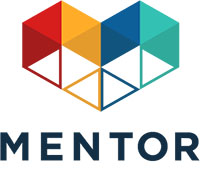August 31, 2020 Reflections on the Summer Institute on Youth Mentoring 2020
The Summer Institute on Youth Mentoring is a week long intensive hosted at Portland State University, curated by Dr. Thomas Keller and sponsored by MENTOR. This year the event was online and two of MENTOR Canada's own – Michael and Véronique – were able to participate. Here are their reflections:
Our field is incredibly indebted to the contributions of mentoring researchers around the world who are working tirelessly to bring forward new ideas and wrestle with tough questions that affecting the field. This year’s theme was mentoring older adolescents for college and career readiness in the transition to adulthood. Participants in the Summer Institute learn about the latest developments in theory and research on youth mentoring, engage in discussions with peers, and think creatively about program innovation.

Sessions included
The presenters at the Summer Institute have been selected for their expertise in mentoring and youth development from diverse career backgrounds
Understanding and leveraging webs of support during youth transitions across educational and career pathways
Shannon Varga
Zooming in on Young People’s Trust: The role of trust in organizations
Aisha Griffith
Mentoring urban, low-income, Latinx students during the transition from high school
Bernadette Sanchez & Lidia Monjaras-Gaytan
Mentoring Relationships during the Year Up Program
Jess Britt
Newer approaches to mentoring older adolescents
Sarah Schwartz
Learn more about the speakers
Michael Garringer, Director of Research and Evaluation at MENTOR summarized the week’s rich discussions. Below are a few insights that deserve to be highlighted.
Thinking about Mentoring as a TEAM, rather than INDIVIDUAL intervention.
The mentoring relationship is a relationship multiplier. Like in community organizing where the primary role of the organizer is to recruit and replace themselves, so must we as mentors work on thinking from a pair mindset to a team mindset. Webs of support/networks help young people build and bridge social capital and a “team approach” brings a range of skills, opportunities, and helpful voices.
The team mindset may be helpful in recruiting new mentors, because it could reduce the pressure on them that they have to have all of the answers. If we establish a culture in our programs that reinforce the idea of episodic or seasonal mentoring rather than seeing the dyad as the panacea, we can produce better outcomes for mentees and make mentoring more accessible. Just like a strong non-profit, you want to help pull together a board of directors for the young person and support them in their vision/mission.
Making the ask to a new connection can be intimidating and needs practice. Mentors can build help-seeking skills and offer emotional support as youth do this (acting as an anchor), and help them practice asking.
Youth need help mapping existing connections first. Helping them think about how to map new connections and make the ask takes practice. A Mentor can be a key bridging tie to new, relevant connections. Being thoughtful and listening to the young person about their hopes, dreams, interests, and goals are critical to making the right introductions to the right people. Small steps like information interviews, or following “an assignment” from the program can ease the social burden and increase compliance (e.g. My program has asked me to talk to three people attending college about their experience). Teaching young people how to build their own networks might be the most sustainable model of all.
Programs can focus on building “infrastructure” and institutional contexts where the adults can respond positively when youth reach out. When bringing adults in webs, they can benefit from some training or information on the role (everyday mentors such as teachers, coaches, and other adults who are in a position to be a role-model and positive influence) so they know what to expect. How can we teach adults how to step up when a youth reaches out to them for mentoring?
It is worth revisiting important work in this area such as the natural supports framework and how we can be more intentional about nurturing bridging ties. Read More on how Mentoring helps vulnerable youth enhance their natural supports.
We can never forget about the pivotal role of trust. Keep earning trust in the mentoring relationship and be deliberate.
When you are introducing others to your consider teaching them how to build trust, or at least not weaken it.
Trust building actions and activities are crucial for forging strong connections. Projects and activities that you do with your mentee are early stage “proving grounds” for the mentor or supportive adult.
Honour cultural context of youth and family, honour all forms of existing capitals in the young person’s life and take a strengths-based mindset.
Expect a winding journey when mentoring young adults.
We know that trust takes time to build and sometimes even the most successful mentoring relationships do not follow a linear journey. Managing expectations at the outset can help increase mentor understanding and satisfaction.
Mentoring programs should offer flexibility in “coming and going” or in restarting the journey, extending “grace” when youth make a mistake or go off track. Sometimes there are many other barriers the youth encounter and mentoring programs and mentors may want to consider if/how they are able to remove those barriers (money, paperwork, family dynamics, information sharing, practical challenges).
Mentors should also remember their mentee is a whole person and ask about how they are doing in multiple domains (family, school, health, etc).
Always keep the long game in mind. It is never too early to start talking about transitions to adulthood and exploring possibilities for growth, education, and the world of work.
There were so many other observations, reflections, and questions that will inform our work over the next year. Over the next few months, MENTOR Canada will be working to bring some of these insights and findings to Canadian practitioners in more tangible ways. Stay tuned!
Once again thank you to Dr. Thomas Keller and the whole team who pulled this event together, Michael Garringer and the MENTOR team who sponsored the event, and all of the researchers and participants who made time to share their insights with us.

